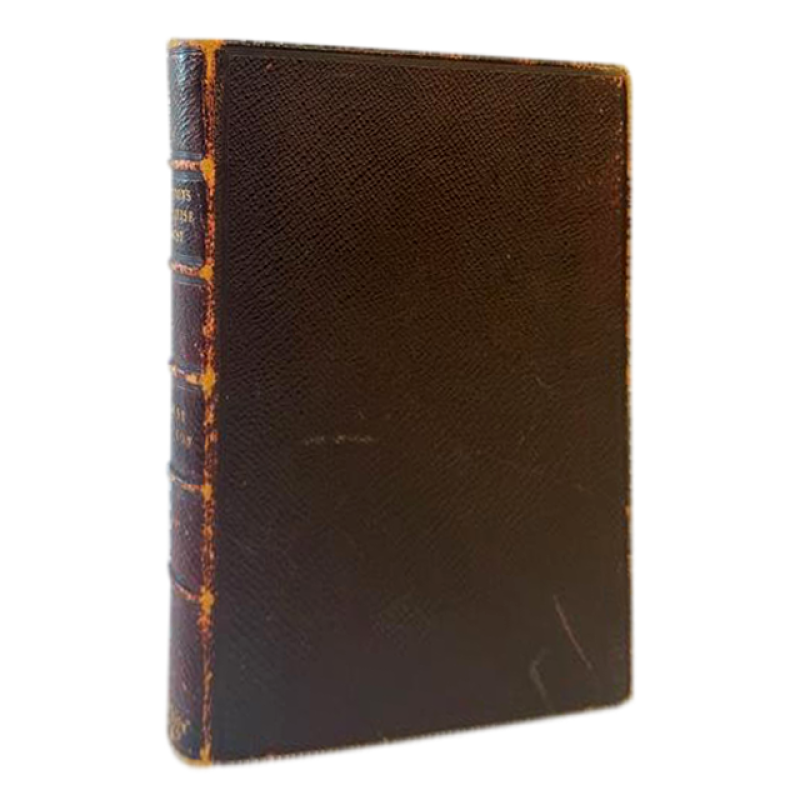
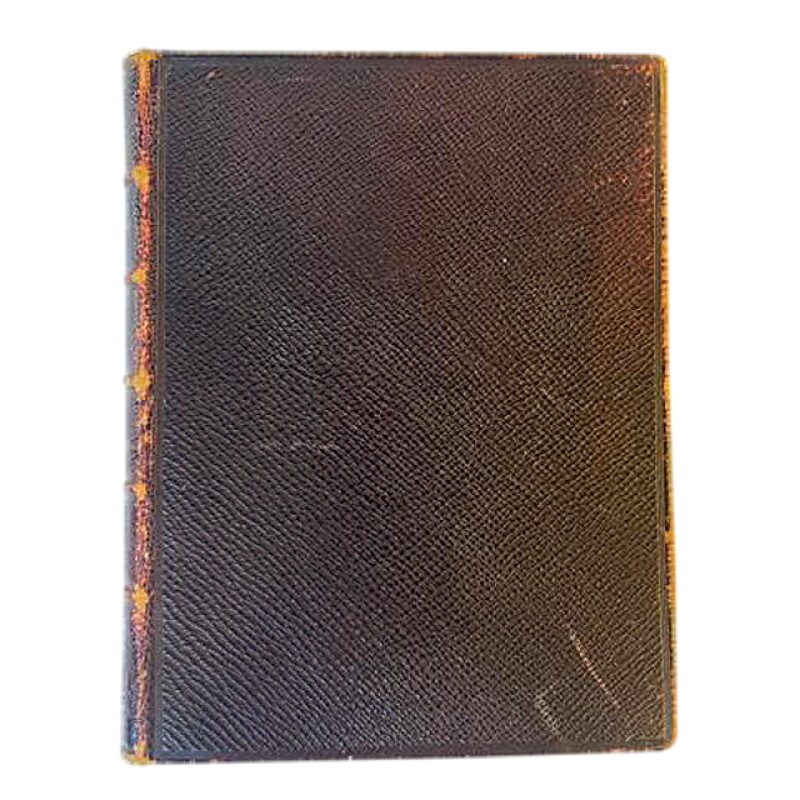
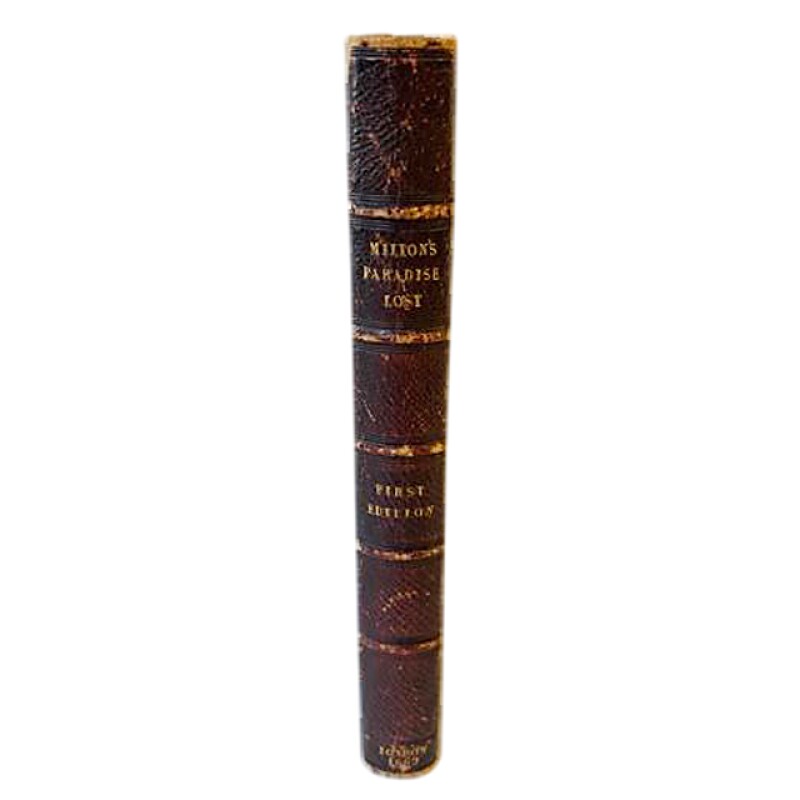
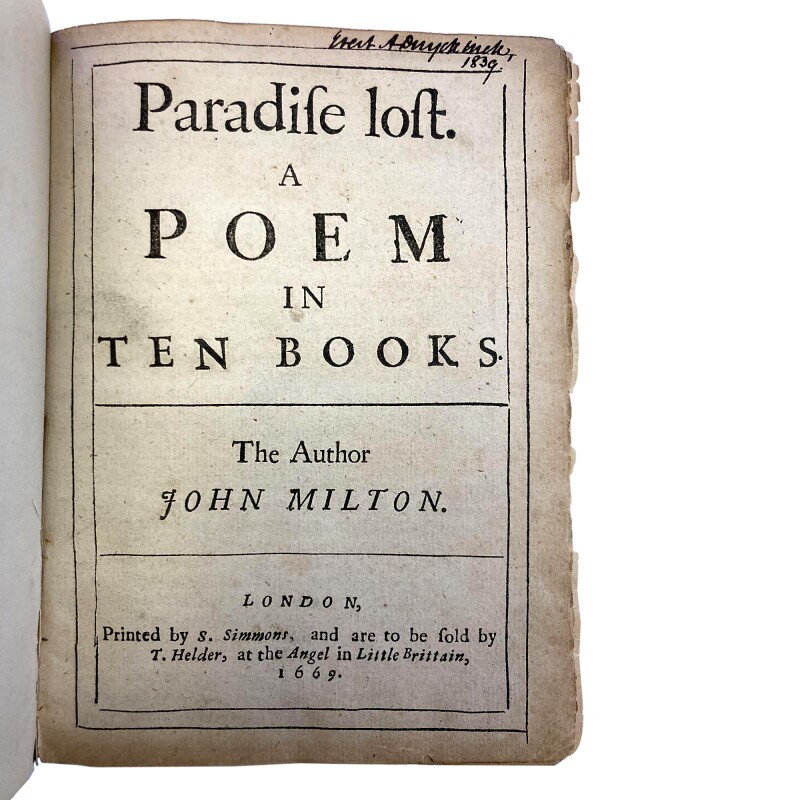
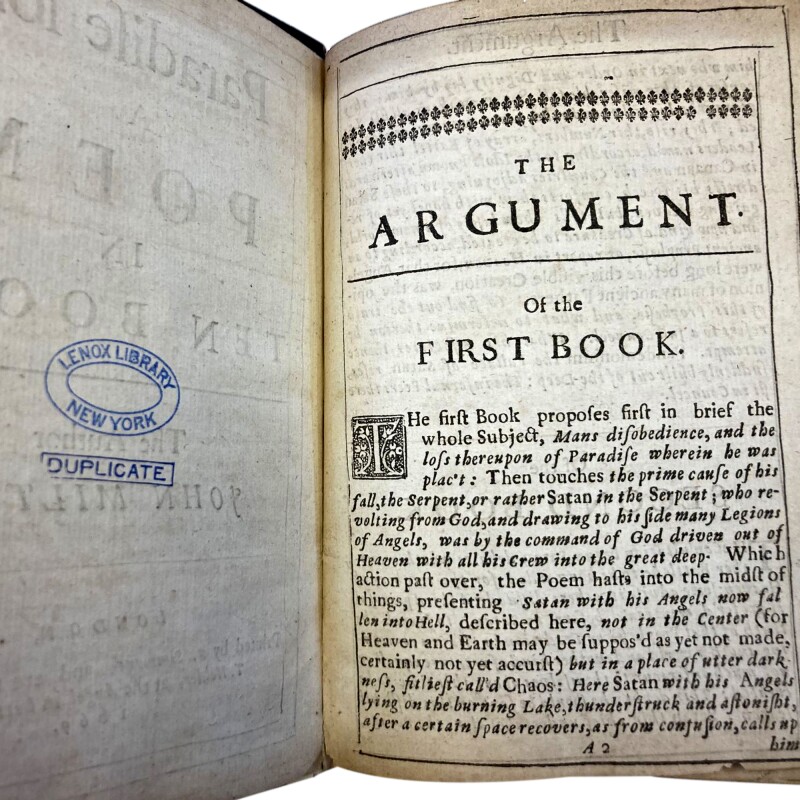
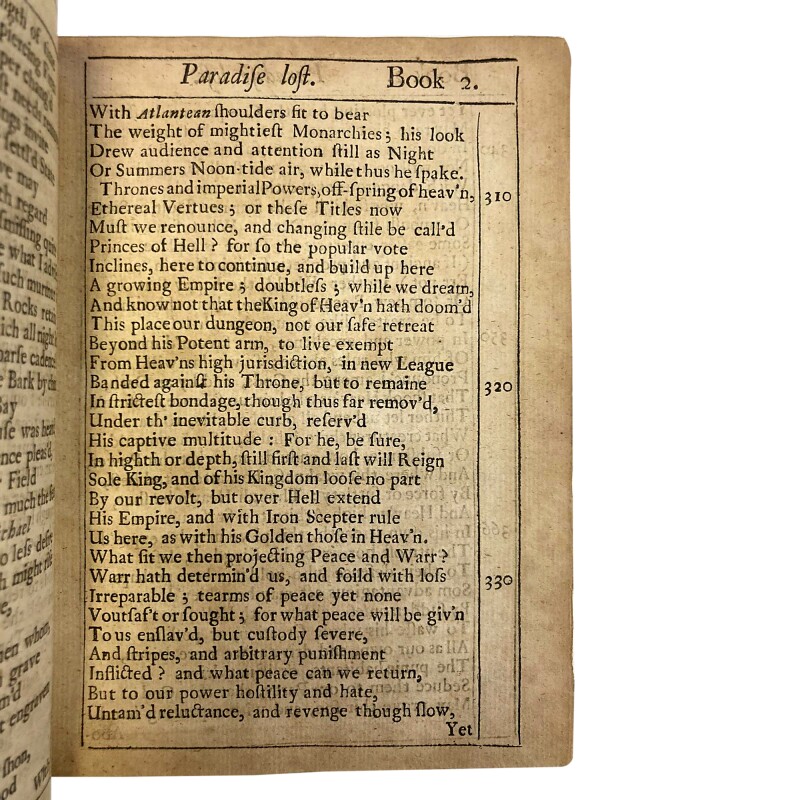
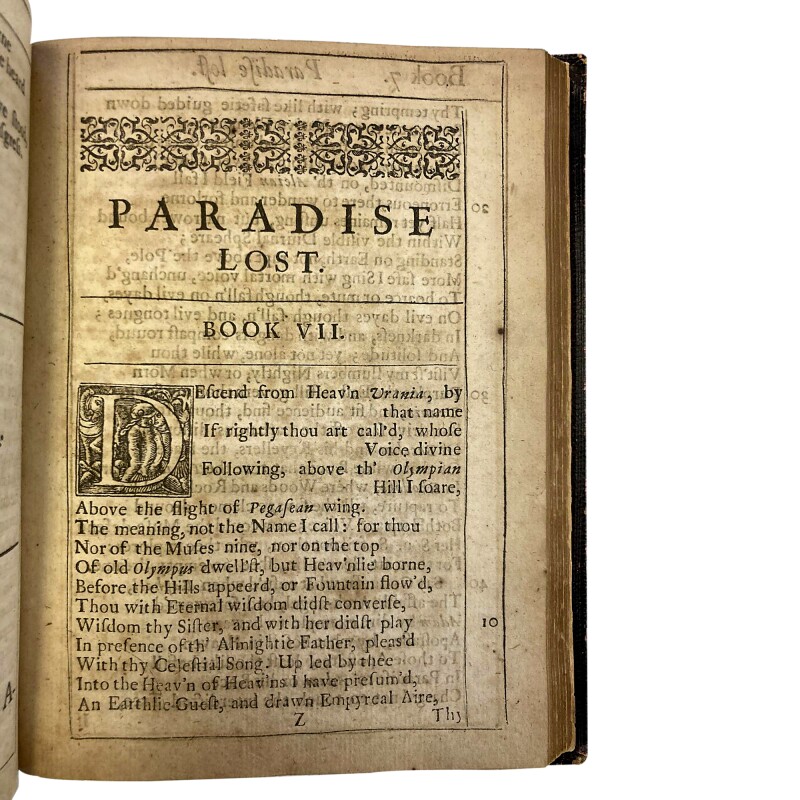
John Milton
Paradise Lost
Printed by S. Simmons, and are to be sold by T. Helder, at the Angel in Little Brittain
1669
Complimentary shipping
Price:
International shipping available
Customs duties and taxes may apply.
Ships from: Maryland, United States
Taxes not included
VAT and other taxes are not reflected in the listed pricing. Read more
Authenticity guaranteed
We guarantee the authenticity of this item.
Details
Description
Later bound first-edition copy of Milton's seminal work.
- John Milton (English).
- London: Printed by S. Simmons, and are to be sold by T. Helder, at the Angel in Little Brittain, 1669.
- A4, a4, A4-Z4, Aa4-Tt4, Vv2.
- Octavo.
- Includes bookplate of Thomas Jefferson McKee (1840-1899), a well-known book collector and lawyer from New York whose collection was auctioned off in 1900, this copy was lot 3091.
- Bound in full morocco, spine paneled with gilt lettering, gilt text block.
Autograph of Evert A. Duyckinck, 1839 on top blank margin of title. Evert Augustus Duyckinck, 1816-1878, was an American publisher and biographer. Among his work, he assisted Edgar Allan Poe in printing his Tales collection in 1845 and selected which stories to include. Duyckinck was also known to have lent Melville copies of his books, including a copy of The Decameron and a copy of Paradise Lost.
Has the stamp of 'Lenox Library-Duplicate' on verso of title. The Lenox Library was a library incorporated and endowed in 1870, became a part of the founding collection of the New York Public Library in 1895, and opened to the public in this capacity in 1911. Of its collection in 1894, 15,000 of the 83,331 were from the collection of Evert Augustus Duyckinck.
Simmons printed 1,200 first-edition copies in 1667, and issued them over three years with varying title pages. The title pages have different years, with them reading 1667, 1668 or 1669. There is no known relationship between when a given copy of the text itself was printed, and the attached title page, making establishing priority difficult.
This issue includes "Milton's synopsis of each book ("the Arguments" of Books 1–10), his defense of "the Verse" and a list of errata, adding 16 pages of preliminary matter to the book. Simmons's note to the reader states that he had procured this explanation from Milton because readers of the poem had "stumbled" on first encountering it, asking "why the Poem Rimes not." Milton's strident defense of blank verse (unrhymed iambic pentameter) is printed in large type that fills two pages. His chosen meter, although no longer fashionable by 1667, was the dominant mode of Shakespeare's plays and is the closest to the natural rhythms of English speech. Samuel Johnson later commented sarcastically that, "finding blank verse easier than rhyme, [Milton] was desirous of persuading himself that it is better."" [Morgan Library].
Provenance
Thomas Jefferson McKee
Evert A. Duyckinck
Condition Report
Some wear and rubbing to binding.
Front free endpaper through page A3 loose.
Small hole in middle of leaf Cc3, impacts text.
A few leaves slightly stained.
Feature(s)
Language
Subject
Conditions of Business
Please note that the cancellation right for EU/UK purchasers applies to this item. Please read Condition 19 of the Buy Now Marketplace Conditions of Business for buyers for more information. Read more here.